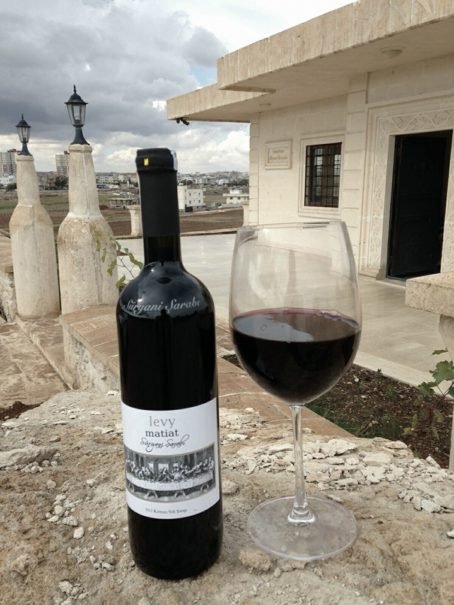
Lamenting a Missed Moment for Turkish Wine, and Turkey

Lamenting a Missed Moment for Turkish Wine, and Turkey
Assyrian wine in Istanbul
When we lived in Istanbul, my wife and I called it “the Last Supper wine.” It had a print of the Da Vinci painting on the label, not as a proclamation of its particular genius but because it was a communion wine made by Assyrians outside the city of Mardin. You can’t talk about this wine’s terroir; you have to talk about its dirt. The wine tastes like the earth of Eastern Anatolia, and also of its history. The grapes are put in sacks, stomped, and left out in the sun to ferment. But unlike the bathtub rotgut made by expats in Saudi, the Assyrians have been making this wine in the same manner since before Jesus was born.
One of the last times we had this wine—officially known as Süryanı Şarabı Levy Matiat—was almost four years ago. It was the day after protests over Taksim Gezi Park had exploded and our neighborhood was littered with juiced lemons, a tear-gas countermeasure. We walked past a couple guys manning a steal dumpster lined with empty beer bottles, some perhaps being readied as Molotov Cocktails, to our beloved wine purveyor La Cave in the Cihangir neighborhood. The Patron, as we called the shop’s owner, was bemused by the chaos.
Even though there’d been a riot the night before, these were good times for the country. Liberal and conservative youth were united against the big-money interests who wanted to develop the park they occupied. At the same time, persecuted minorities like the Kurds were making political strides while a truce held in the country’s southeast, where the city of Mardin is located. We took the wine over to some friends, thinking we might discuss the unfolding political situation at the park, but we ended up talking about the state of Turkish wine instead.
As a whole, Turkish wines aren’t bad. Sure there are some kopek öldüren, or dog killers, as the Turks call them. But most Turkish wine with a cork in the bottle is pleasantly drinkable. The problem, as we and our friends agreed over our bottle of Levy Matiat, was that the wine industry stifled diversity. Big producers were mostly content to churn out whites from Thompson seedless and reds from the charming local combination of ‘ox-eye’ and ‘throat-closer’ grapes. But in that moment, a few Turkish vintners were trying to revive the Greek and Armenian wine traditions, and we were seeing Assyrian wine more than we had. It seemed that things were opening up, and the country as a whole was ready to come to terms with its complicated history as heir to the multi-ethnic Ottoman Empire.
We were wrong. Things went in the other direction. You might still get a bottle of Levy Matiat in Istanbul. But just an hour south of the winery in Mardin is the town of Nusaybin. In the past year, Kurdish guerrillas and Turkish defense forces have leveled the place as they’ve fought over it, and the government has sentenced a painter to two years in prison for depicting the carnage. If I had some Assyrian wine now, it would be hard not to taste this bitter history in it as well.